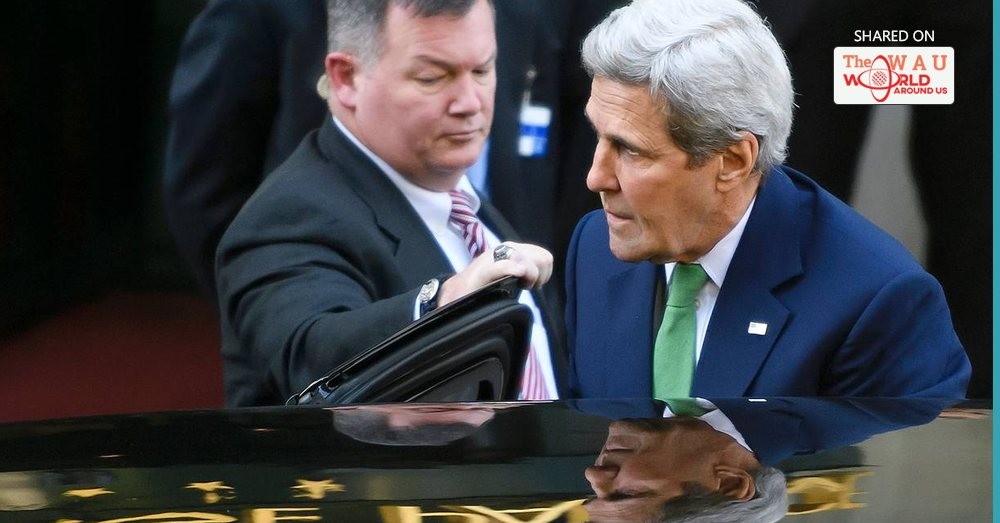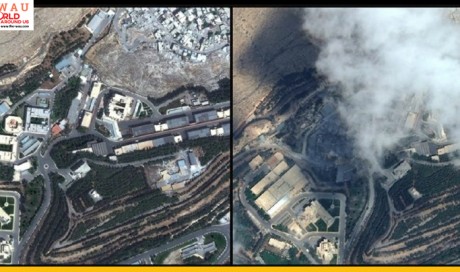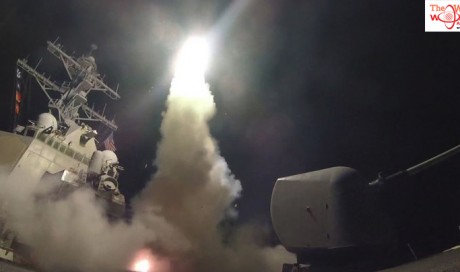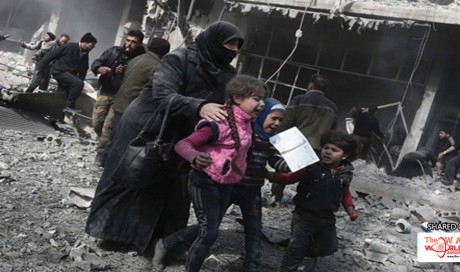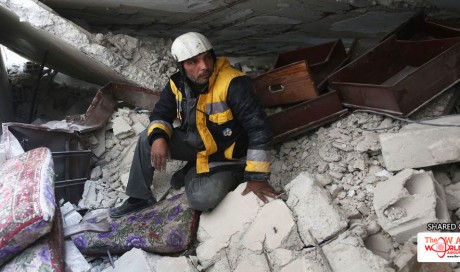LAUSANNE, Switzerland—A meeting of top diplomats from nine nations, including the U.S., Iran, Saudi Arabia and Russia, produced new ideas to end the violence in Syria but no concrete agreements or a definitive pledge to meet again.
After more than four hours of talks on Saturday, which also included foreign ministers from Turkey, Qatar, Jordan, Iraq and Egypt, as well as the U.N.’s special envoy to Syria, Secretary of State John Kerry said the sides hadn’t found a way to resume aid deliveries or restore calm. But he said they had candid talks about “a number of ideas from a number of different ministers” that are promising and “need to be quickly followed up on.”
Those proposals, which Mr. Kerry declined to spell out so as not to “create speculation about things,” might help “contribute to filling the gaps in the cease-fire that existed previously,” he said. He said staff from the countries would follow up on Monday and would see where they are after those conversations.
“There were a lot people there who wanted to be able to close the loop rapidly, but…also nobody wants to do this in a sloppy way,” Mr. Kerry said.
Mr. Kerry told reporters after Saturday’s meeting that the diplomacy was continuing because of the urgent situation in the beleaguered Syrian city of Aleppo and “the urgency of trying to find something that works other than military action.”
Obama administration officials have said they are considering military options, but President Barack Obama is seen as being wary of getting more militarily involved in Syria’s more than five-year-long civil war that has killed more than 400,000 people.
In a sign of the limits of U.S. options and the influence of Russia on the conflict, Mr. Kerry has continued to talk with his Russian counterpart even after shutting down talks on a failed cease-fire deal with him last week.
As years of diplomatic efforts have failed to create the calm the U.S. and other powers see as necessary to return to political talks, Mr. Kerry said Saturday’s “skinnied down” grouping of countries, including Syrian President Bashar al-Assad’s key backers Iran and Russia, as well as the main backers of the opposition—the U.S., Saudi Arabia, Qatar and Turkey,—had allowed for a free-flowing brainstorming session.
Previous meetings that had all of these countries plus Europeans and others interested in the conflict “were too big,” he said.
Though Mr. Kerry said he had refined the format, it was unclear how he could pressure Russia or Iran to agree to a calming of the violence when previous tactics, such as offering Russia closer military cooperation in the Geneva deal, had failed.
Mr. Kerry said the sides also discussed “some very specific steps for a road map to Geneva talks, which everybody unanimously agreed should begin as soon as possible—and possible is obviously linked to a reduction in the violence.”
Before the larger session, Mr. Kerry huddled separately with Saudi Foreign Minister Adel al-Jubeir and then with Russian Foreign Minister Sergei Lavrov. The one-on-one with Mr. Lavrov was the first since Mr. Kerry shut down bilateral talks on a cease-fire last week, and it lasted for about 40 minutes. Mr. Kerry said he had raised Russia’s role in cyberattacks aimed at disrupting U.S. elections as well as tensions related to the Syria process.
The big session had “obvious tension, but everybody was constructive, nobody spoke with rancor,” Mr. Kerry said.
Mr. Obama convened a meeting of his national security council on Friday to discuss the fight against the Islamic State extremist group and the civil war in Syria. It isn’t clear if any decisions were made in the meeting but officials have said the White House is considering nondiplomatic efforts in Syria.
Officials have said they have discussed the possibility of more lethal weapons to rebels, limited military strikes on positions of the Assad regime and sanctions.
According to a White House account of the meeting, Mr. Obama “emphasized that preventing attacks on the United States and countering terrorist threats from ISIL and al Qaeda in Syria remains the top priority.” The account referred to Islamic State by one of its acronyms used in the West—ISIL.
According to the White House, the president directed officials to continue to pursue diplomatic talks on the more than five-year civil war that has killed more than 400,000 people and said they should “encourage all sides to support a more durable and sustainable diminution of violence and, more broadly, a diplomatic resolution to the civil war.”
The Syrian government, aided by Russia, launched a fresh offensive in eastern Aleppo last month. That offensive followed a strike on a humanitarian aid convoy near Aleppo, which U.S. officials have blamed on Russia. The offensive on Aleppo continued into the weekend and has killed hundreds so far.
Mr. Kerry will travel on Sunday to London to meet with British, French and German diplomats about the Syria crisis. The Saudis and the Jordanians will also join those meetings.
Share This Post

